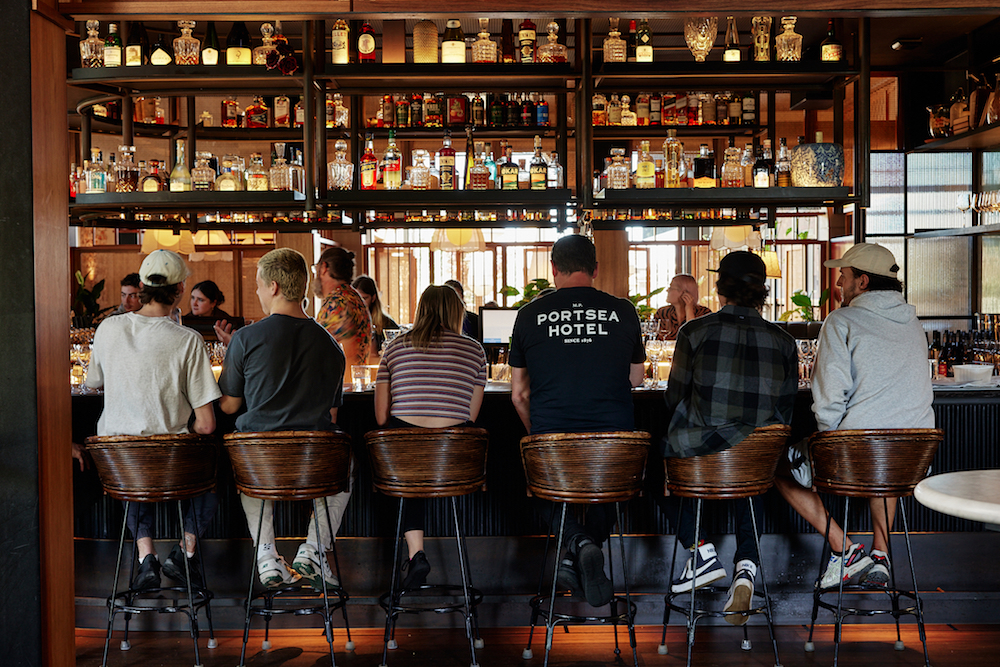The benefits of hospitality training programs are often discussed, but how do they actually work? We spent the day with Morris Hospitality in order to find out.
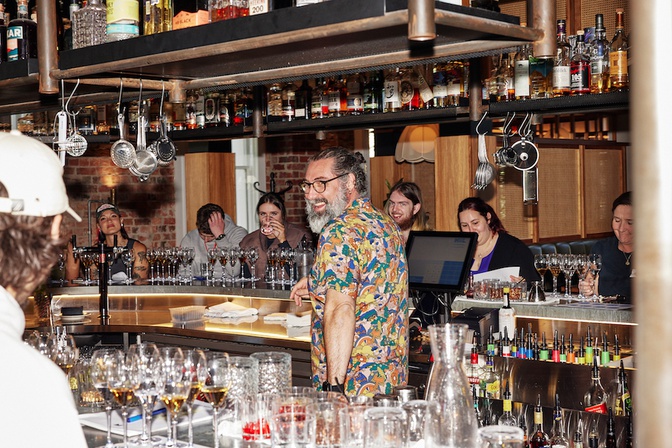
Old-school hospitality heads will probably tell you they learned the ropes on the job, getting thrown into service with a sink-or-swim approach. These days, hospo companies tend to see the benefit of focused training on both group and individual levels. This philosophy applies at Morris Hospitality (MH).
MH runs some great Victorian venues, such as Chapel Street favourite Lucky Coq, the multi-faceted Albert Park Hotel and ambitious waterfront project Portsea Hotel, to name a few. The group operates a total of eight venues and an online wine retailer, which all have one thing in common: the drinks. MH has an unrivalled drinks offering across all its venues, and this starts with consistent training for new staff members.
We tagged along to one of MH’s training sessions to find out how they work and gain some valuable insights of our own.
MH runs their training sessions in-venue, so attendees get a chance to see how spaces that aren’t their own workplace operate. Today’s session is upstairs at The Albert Park Hotel, and there are new hires from each of MH’s venues in attendance – the three we mentioned earlier, plus staff from Half Moon, The Vincent Hotel, O’Connell’s Hotel and Port Melbourne’s Railway Club Hotel. This makes training days a great way for new recruits to network, but that’s just an added bonus compared to the drinks program.
Running the event is Merlin Jerebine – a veteran bartender who’s now MH's assistant general manager and the mastermind behind the group’s drinks offering. Jerebine has 26 years of experience in hospitality, working in dozens of bars, distilling spirits and travelling around the world in the pursuit of hospo work and knowledge.
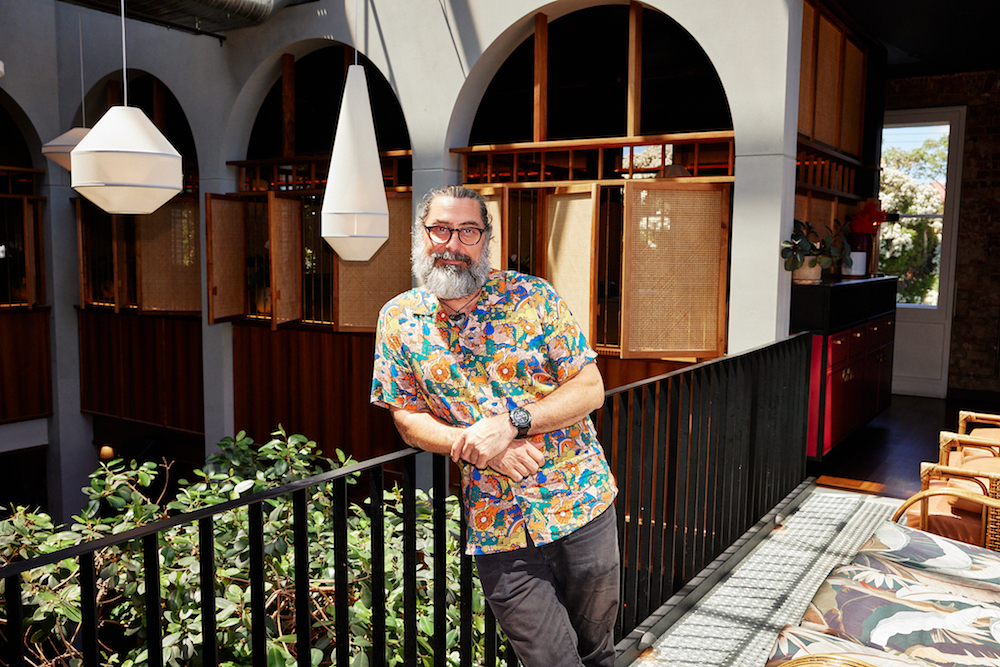
“My title doesn’t matter, I just know about booze,” Jerebine says to the employees as the session kicks off. “But I don’t know everything, so I encourage you all to jump in whenever you feel like it.”
Jerebine’s demeanour is humble and inviting, and it’s clear that everyone in the room is quickly at ease. It’s far from the intimidating over-your-shoulder “learning” many of us have experienced in our early shifts behind the bar, and Jerebine backs his casual approach up with a wealth of knowledge to draw from.
The curriculum today is all about spirits. Jerebine leads with the basics and educates the room on distilling processes while he shares personal anecdotes about making liquor. There are six spirits to learn about, starting with vodka. The employees are taught how to sample spirits properly – a technique with their mouth and nose placed in the glass where they breathe in and out for twenty seconds or so, in order to taste the spirit through the nose.
Next, we learn about juniper berries (with a taste-test included) and how gin is made, with another taste test and discussion on botanicals. The session is running as more of an open forum than a class, and Jerebine’s upbeat attitude and joke-telling is keeping the room engaged. There’s an industry-leading balance of knowledge and education techniques on display here, which speaks volumes about both MH and Jerebine.
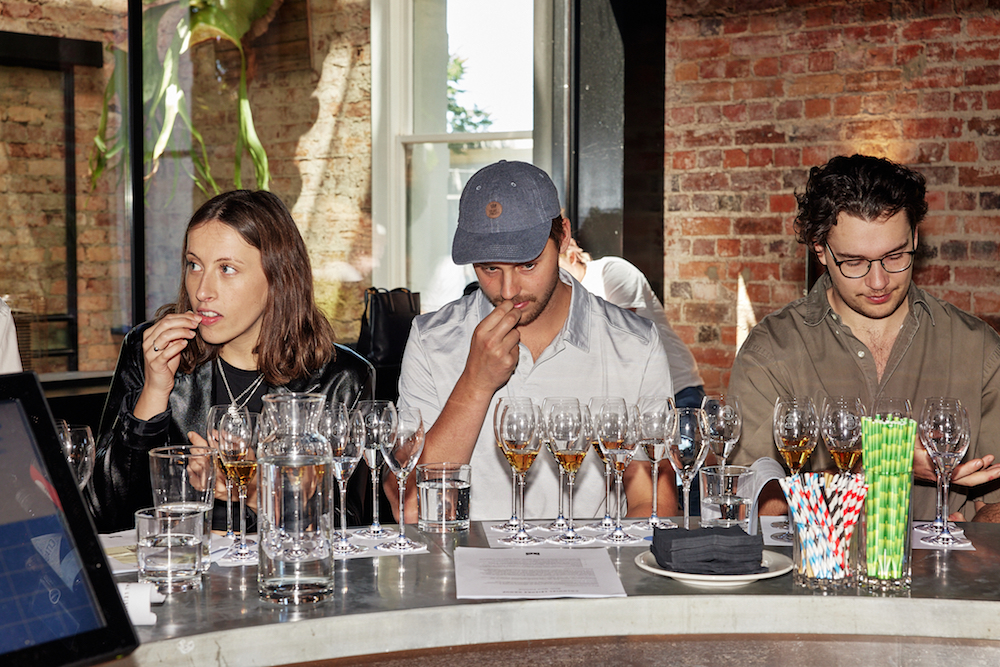
There are dozens of interesting facts being shared around the room. Jerebine tells everyone that a spirit can only be classed as a bourbon if it’s aged specifically in American Oak barrels and made up of at least 51 per cent corn – while rum has “island rules” and can be made from a combination of molasses (a sugar by-product) and just about anything else.
While the employees are tasting some molasses to help gain an understanding of the ingredient, Jerebine starts listing off the import and export taxes for different alcohols moving in and out of Australia. The man knows his stuff.
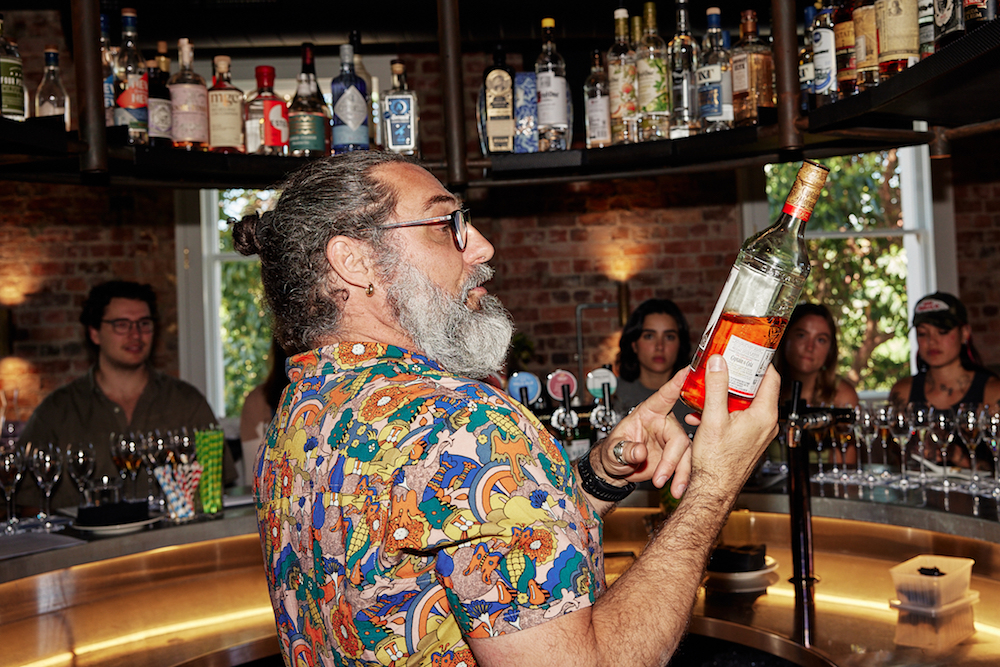
What stands out here is the engagement of all the staff involved and a willingness to share knowledge. This cohort is very curious and is asking heaps of questions throughout the session. It isn’t until the end of the day that we realise Jerebine hasn’t failed to answer a single one, no matter how specific.
There’ll be more service-focused training for newer staff in their own venues, but in one afternoon we’ve learned more about the production, history and flavour profiles of spirits than we ever did behind the bar.
There are still benefits to the old-school mindset of learning on the fly, but it’s clear to see that MH intends to lead a new wave of education in the industry – something that’s sorely needed after experienced staff left hospitality in droves throughout the last two years. We’re looking forward to seeing what the next generation of hospo stars brings to the table – given the right training, of course.
Photography: Hugh Davison
This article is produced by Scout Jobs in partnership with Morris Hospitality.
